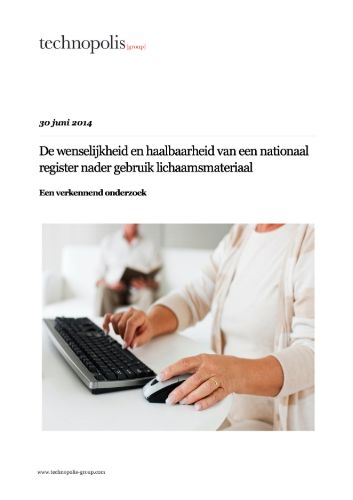Feasibility study of national registry facilitating ‘opt out’ for further use of residual tissue
Publication date: 17 April 2015 | Report language: EN
This project aims to evaluate the feasibility of a national registry for opt-out registration for further use of residual tissues. The idea would be to eventually create a national registry where all patients and future patients can indicate that they want to opt-out for further use of their stored residual tissues. This obviates the need for caregivers maintain a separate registry for opt-out and avoids patients being questioned every time they enter another care facility. The registry needs an easy point of access to file withdrawals. In addition, patients need to be able to do that themselves, as well as offered to possibility to reconsider their choice.


